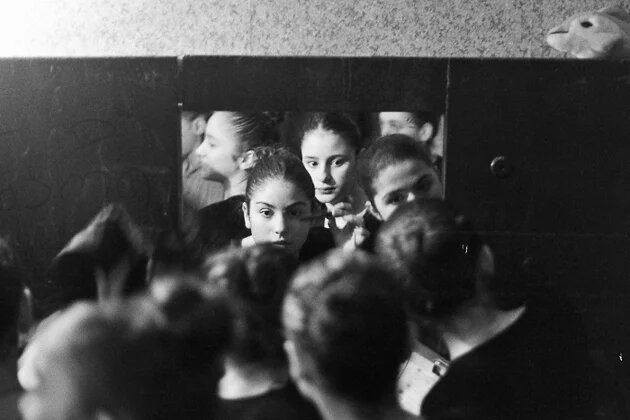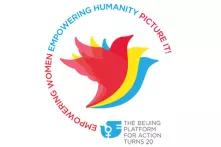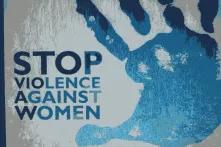
Introducing Women Human Rights defenders’ portraits from Georgia
Born a girl: If you were born a girl in Soviet Georgia, no one would tell you that you had the right to question inequality. From the age of 3, you would witness inequality, as well as domestic violence, but at the time, your voice would simply be too weak for your questions to be heard. At the age of 6, you would become well aware that raising questions about inequality might result in punishment or public embarrassment. Circumstances were predetermined and questioning them was inappropriate. At the age of 9, you would become proficient at pretending that everything was determined either by the Communist Party or God. Your only choice was that of which master would decide on your behalf. This would be the only opportunity to navigate through the system of restrictions and punishments and to become a part of the artificial order that was the Soviet State.
Collapse of the authoritarian regime: In 1991, after the collapse of the Soviet Union, Georgia regained its independence and things were expected to improve instantly. However, this did not take place and, on the contrary, the population faced intense poverty and socio-economic breakdown. Being 10 years old at the time, I could already observe my mother, as well as the mothers of my friends, assuming unusual tasks and obligations. While men were involved in extreme political debates and violent confrontations over power and authority, our mothers were working and looking after all of us, children and the elderly alike. In several years, political freedom brought with it large-scale unemployment and hunger, electric lightning was substituted by oil lamps, and gas heating – by wood stoves. Meanwhile, I kept growing and used to silently observe mothers and grandmothers, who accepted their role of breadwinners without asking for a voice in family decision-making.
Framework of girlhood: My earliest memories of identifying with my girlhood relate to the school period, when we were permanently discussed and evaluated as potential brides for the sons of our teachers. During that time, I could hardly realize the fact that my classmates tying the knot at the age of 14 or 15 were sacrificed to the tradition of early marriage. At that time, nobody told us we had the right to protest the fact that our girlhood was confined to the tasks of marriage, having children and thus serving the national interest. Those who survived, kept this understanding of girlhood unquestioned, dormant, until the day we would be able to challenge our alienated selves.
Almost 20 years later, I feel the courage to ask questions and become familiar with the alienated self of my girlhood. These questions are linked to the status of women and their situation in Georgia. Even 20 years after my country gained independence, women’s status has not been significantly altered. We still face discrimination and only some of us manage to break down the barriers. Though such women are few, they still serve as role models for women like me who remained silent for so many years. It is time to break the silence and ask the questions I have always longed to ask. These are human rights and women’s rights activists, whose daily life and self-expression are relentlessly criticized and put under pressure, but still, they persevere and encourage us to take action, too:
As per the UN Resolution on Women Human Rights Defenders[1], women human rights defenders face structural and historically based inequalities in power relations and discrimination against women, as well as various forms of extremism, which have direct implications for the status and treatment of women and to the fact that the rights of some women human rights defenders are violated or abused and their work stigmatized owing to discriminatory practices.
To what extent do women human rights activists work in an equal environment in Georgia?
Women human rights defenders are often unheard and unappreciated in the public eye. I distinctly remember the process of electing the Ombudsman (Public Defender) of Georgia in 2012. After an intense debate, the Government of Georgia made a call to civil society to propose relevant candidates among which the Ombudsman would be selected. Four candidates, including two women, were nominated for the position. Among them was Tamar Gurchiani, who enjoyed a significant amount of support from civil society organizations. However, she was harshly criticized for as a woman and for her acknowledgment of LGBT rights. Ultimately, once all four candidates had carried out intense campaigning and participated in numerous public and media debates, the Georgian Government proposed a fifth male candidate[2], who had not, in fact, competed with the other nominees in the campaign. Eventually, he was the one to be selected as the Ombudsman.
We, as women human rights defenders, will cross many barriers, we will face substantial disparity, as well as criticism, for acknowledging the equality of all humans, but by no means does this indicate that we will be, in return, considered to be on an equal basis with male human rights defenders.
According to the UN Resolution on Women Human Rights Defenders[3], women human rights defenders are at risk of and suffer from violations and abuses, including systematic violations and abuses of their fundamental rights to life, liberty and security of person, to psychological and physical integrity, to privacy and respect for private and family life and to freedom of opinion and expression, association and peaceful assembly.
Do women human rights activists face gender-based violence and aggression in Georgia?
Tamar Kordzaia has been one of the prominent human rights activists in Georgia working on the issue of freedom of press at the Georgian Young Lawyers Association (GYLA) and the Journalists’ Charter of Ethics. In 2013, she was elected as a member of the Georgian Parliament, which, in April 2014, initiated anti-discrimination legislation in line with the requirements of the EU Association Agenda. Even though the bill was drafted by the Ministry of Justice, and was thus endorsed by the government, it was staunchly opposed by the Georgian Orthodox Church, which enjoys the trust of over 90% of the population. The reason for the opposition was the inclusion of gender identity and sexual orientation as a possible basis for discrimination. Clergymen argued that the draft-law would “legalize homosexuality” in Georgia. Tamar Kordzaia was nearly the only parliamentarian who openly confronted the clergy’s interference in state matters. She was then verbally abused and scolded in the media, as well as in person, on numerous occasions, for being the only explicit supporter of the bill. During the above parliamentary session, while the multitude of clergymen raucously criticized Ms. Kordzaia and called for retribution, she left the parliamentary session after stating the following: “You demand to punish me in this hall. If you don’t like my presence, I will leave to maintain your peace, but what is taking place here is pressure on the parliament, which, for me, as a parliamentarian, is unacceptable”.
Where do the rights of women human rights defenders originate? Where are they protected?
The rights of women human rights defenders are protected in the very spirit of my girlhood. The very first moment when I, as an individual, raised the questions regarding inequality and gender-based violence, serves as the foundation for my transformation into a human rights activist. I have holding on to these questions and this sense of inconvenience in my mind and heart and they have yet to exhaust me. Throughout these years, I have been searching for other women who had the same questions. Women, like Tamar Gurchiani and Tamar Kordzaia, who would hear these questions of mine and, with their actions, give the answers I was looking for, telling all three-year old girls the truth about their right to question inequality.
The views expressed in this article belong to the author, and do not necessarily reflect the views and positions held by the Gunda-Werner-Institute or the Heinrich-Boell-Foundation in general.
[1] UN Resolution adopted by the General Assembly on 18 December, 2013, 68/181/ Promotion of the Declaration on the Right and Responsibility of Individuals, Groups and Organs of Society to Promote and Protect Universally Recognized Human Rights and Fundamental Freedoms: protecting women human rights defenders.
[2] With all due respect to him as the present Public Defender.
[3] UN Resolution adopted by the General Assembly on 18 December, 2013, 68/181/ Promotion of the Declaration on the Right and Responsibility of Individuals, Groups and Organs of Society to Promote and Protect Universally Recognized Human Rights and Fundamental Freedoms: protecting women human rights defenders.



